J. Matthew McInnis and Andrew J. Bowen: President Barack Obama entered office in 2009 promising a “new beginning” with the Arab world. Few expected then that this new chapter in U.S. foreign policy would center on Iran’s release from a regime of international stricture and sanction dating put in place over the past decade. As the P5 +1 and Iran conclude a nuclear agreement in Vienna, the Iranian leadership is expected to reap substantial rewards from this agreement. As the concessions currently stand, Tehran is committed to suspending their nuclear program for a period of only fifteen years in exchange for a very lucrative package: future unrestrained access to international arms and missile markets, a $150 billion dollar windfall with the relaxation of sanctions, and decades of new economic investment. Within at least 15 years—as the agreement’s restrictions end—Ayatollah Khamenei will likely be at the threshold of having a nuclear arsenal.
&
A new chapter in the Middle East has certainly opened. Some of the most vocal proponents of this new era have wishfully concluded that a new opening has emerged with the international community where Tehran will act more responsibly with its neighbors. Iran’s supreme leader has markedly different plans and his speculated successors will likely be more like him in temperament and policies. Surprising most observers, a special election earlier this year named hardliner Ayatollah Mohammed Yazdii as Chairman of the Assembly of Experts. The assembly will choose Iran’s next supreme leader, and many expected the election to empower moderates. Rejecting cooperation with the international community on terms other than his own, Khamenei considers this agreement not so much an opening but an affirmation of Iran’s risky, ideologically driven, expansive behavior. From Sana’a to Damascus, Iran’s partners, proxies, and militias are likely waiting for their expected cut of the spoils of treasure and weapons.
&
Ayatollah Khamenei’s new regional great game is beginning and the United States and its Arab gulf allies need to prepare. Iran’s efforts to counter-ISIS in Iraq and to support President Bashar Assad’s regime have been a substantial drain on Tehran’s finances. But the Iranian leadership’s Islamic Revolutionary Guards Corps (IRGC) has the cash to maintain, and soon, more resources to expand their present course. Ayatollah Khamenei has shown no qualms in boxing-in the Kingdom of Saudi Arabia through supporting the Houthis in Yemen, sowing discord in Bahrain and Saudi Arabia’s Eastern Province, and attempting to foment insecurity in the Kingdom of Jordan. Farther afield, Iran has deepened its grip on Iraq, Syria, and Lebanon.
&
Washington shouldn’t loose sight of Tehran’s long-term game amidst the euphoria in Vienna. Iran doesn’t seek partnership, but instead, to systematically deny the U.S. presence in the Gulf and in the region. Iran is actively working to isolate America’s allies. Tehran prefers regional hegemony to cooperation. President Hassan Rouhani is still a creature of the Islamic Republic and its revolutionary political system. He is seeking to keep the regime in power, not fundamentally reform it like an Iranian Deng Xiaoping or Mikhail Gorbachev. The sanction relief and the subsequent new investment will underwrite Khamenei’s existing foreign policy, not manifest a new one.
&
The United States should seize this opportunity to support the Gulf States in improving their abilities to better integrate and to employ their military systems and weaponry, and to help them think through more effective strategy and operational concepts. Washington should also help the GCC in its efforts to develop better counter-terrorism and other special forces capabilities that can contest Iran’s network of proxies and partners in the region. Ideally, the United States could better integrate air and missile defense capabilities of the Gulf States. Short of this, Washington should work with a coalition of willing states (as indicative of the recent air operations in Yemen and against ISIS) in lieu of full regional participation as a first step to establishing a joint military command. Washington should consider upgrading defense agreements with the Gulf States.
&
Washington should also be mindful of its own position in the region and remain vigilant in monitoring Iranian military modernization that can threaten U.S. naval and air operations and freedom of navigation in the Strait of Hormuz and the Gulf at risk. Even if the arms embargo remains for a period of time, Iran will have significant new resources to build their own ballistic and cruise missiles, submarines, mines, and other capabilities without buying from international markets. These new capabilities diminish U.S. capacity to secure the Gulf and leave U.S. Arab allies potentially vulnerable to coercive Iranian behavior.
Forestalling Iran’s success in this great game will require leadership and cooperation between Washington and its allies in the Gulf. The ink on the deal is still drying. It is in our long-term interests to seize this opportunity to work together.
&
J. Matthew McInnis is a Resident Fellow at the American Enterprise Institute and the former Senior Expert on Iran at the U.S. Central Command. Andrew J. Bowen, Ph.D., is a Senior Fellow and the Director of Middle East Studies at the Center for the National Interest.


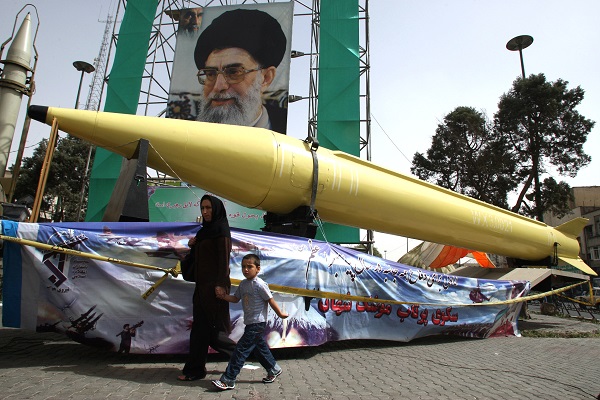



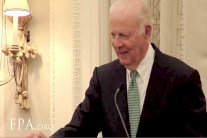

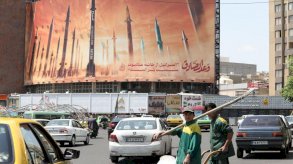

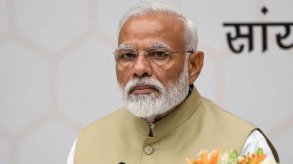
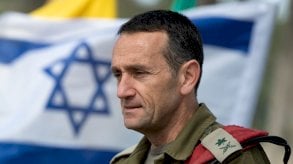

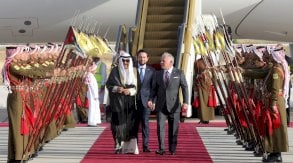

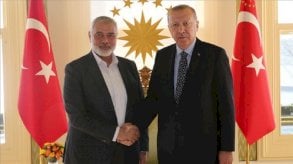

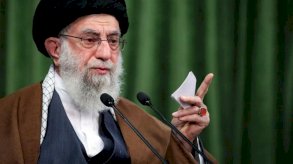
التعليقات